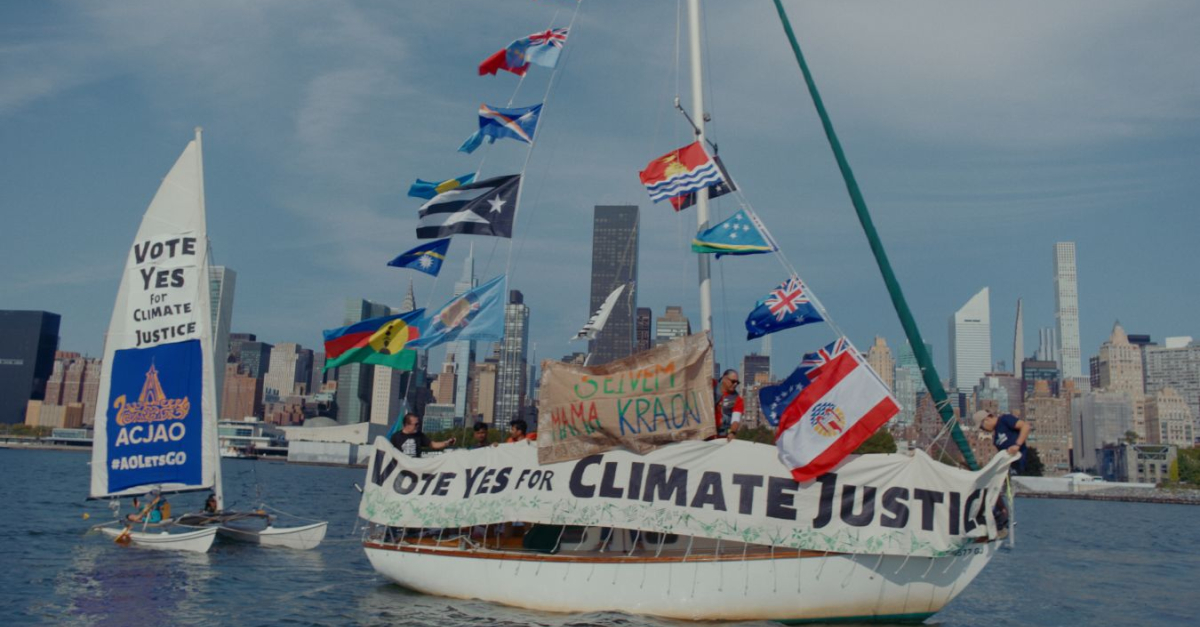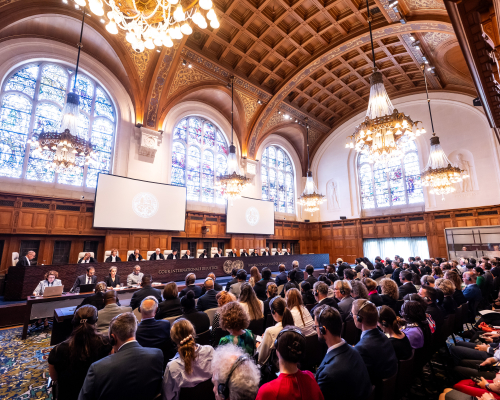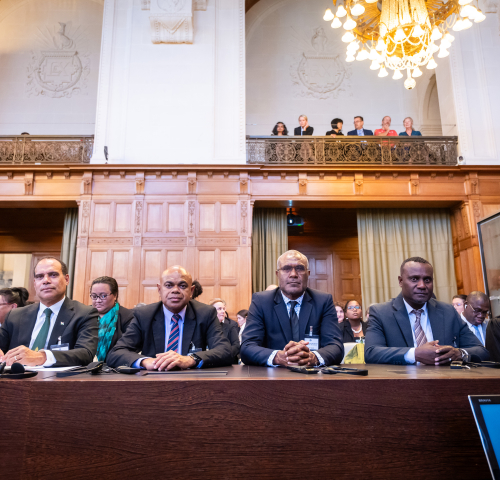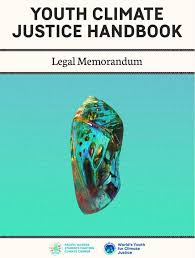On 23 July 2025, the International Court of Justice (ICJ) in The Hague issued a historic Advisory Opinion on the legal obligations of states in respect of climate change. For the first time, the world’s highest court confirmed that climate action is not merely a matter of political goodwill, but a legal responsibility grounded in international law.
Public hearings in December 2024
In December 2024, the International Court of Justice (ICJ) held public hearings in response to a request from the United Nations General Assembly for an advisory opinion on the obligations of states under international law in relation to climate change. The request, initiated by Vanuatu melted within an international movement called World's Youth for Climate Justice (WYCJ). The first two weeks of December 2024, 98 States and twelve international organisations participated in the oral proceedings before the Court, with the ICJ delivering its Advisory Opinion on the matter last week.
Although not legally binding,
Advisory Opinions from the ICJ carry huge weight and authority in the international community - so the case offers real hope that national governments will take the action that is needed to try to reverse the impacts of climate change.
Asser Institute's, Machiko Kanetake
Academic director Machiko Kanetake of the internationally renowned centre of expertise in the fields of public international law, private international law and European law, the Asser Institute in The Hague asked four legal experts - Nataša Nedeski, Kate Mackintosh, Margaretha Wewerinke-Singh, and Yusra Suedi – what this means for climate policies and litigation. This expert interview gives a better understanding of how global climate responsibility will be interpreted and enforced. High-emitting states, in particular, must take action.
“While all states are under strict obligations to take measures to prevent harm from climate change, the Opinion articulates that the obligations of high emitters are especially stringent and demanding, more so than those of other states. Since high emitters have contributed most to the problem and are typically in the best position to take effective action, they are expected to do more than others.”
Rejection of 'drop in the ocean' defence
The ICJ rejected the widely used “drop in the ocean” defence — the idea that a single country’s contribution to global emissions is too small to matter. The Court made clear that every state is legally obliged to take all necessary measures to prevent transboundary climate harm, regardless of its share of global emissions.
“I was not surprised that the Court did not accept the argument that only the Paris Agreement applies, pushing aside other international legal instruments. What I found especially encouraging, though, was the level of detail the Court provided in its analysis of the Paris Agreement’s obligations. Overall, the Opinion marks a significant step forward in legally explaining the responsibilities of countries under international climate law.”
“In affirming that the right to a clean, healthy and sustainable environment is essential for the enjoyment of other human rights, the Court provides a basis for claiming it as an inherent right. While this has already been established in the Inter-American system, no such right has been established at the European Court of Human Rights. It will be interesting to see how the European Court deals with this development in future cases.”
“By weaving together treaty law, custom, principles such as common but differentiated responsibilities, and human rights norms, the Court demonstrates that international law already contains a coherent, mutually reinforcing framework for addressing the climate crisis. The Opinion shows that multilateral rules can evolve and guide collective action. Their actual impact will now be tested by the willingness of countries to implement the due diligence and co‑operation duties the Court has so clearly articulated, and the actions taken in response to apparent breaches.”
International city of Peace and Justice
This advisory opinion underscores The Hague’s role as the international city of peace and justice. It also highlights the relevance of institutions like the International Court of Justice, Asser Institute, the International Criminal Court and many other organisations and institutions working towards a better, safer and more just world.
Read more
[Interview] ICJ climate opinion puts 'final nail in coffin' of states' excuses, experts argue
Machiko Kanetake is Academic Director and the Chair of the Executive Board of the T.M.C. Asser Instituut. She is also Professor of International Law and Security Governance at the University of Amsterdam. Read the full interview of Machiko Kanetake with T.M.C. Asser Institute's experts on their website.

Climate Justice: 'Bringing the World's Biggest Problem to the World's Highest Court'
In The Hague 98 states and 12 organisations join ICJ hearings on climate change. The 2025 Advisory Opinion could drive urgent global action.
The Youth Climate Justice Handbook
The Youth Climate Justice Handbook presents the best and most progressive legal arguments on climate justice, responding specifically to the questions the UN General Assembly is requesting the International Court of Justice to answer.








